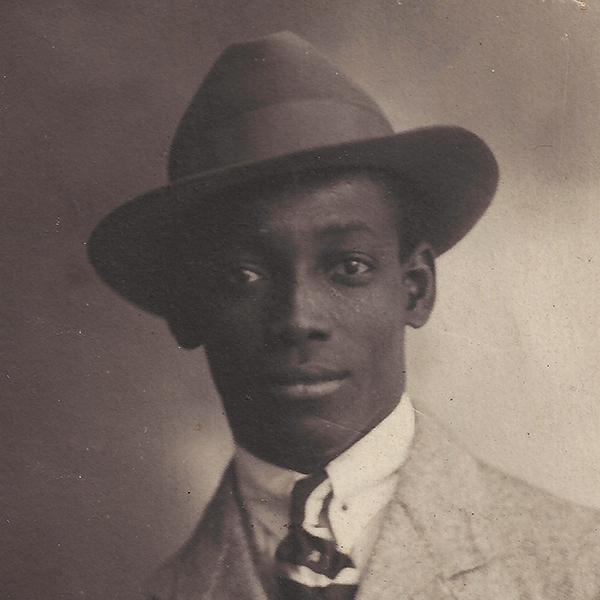Ideals De Kom; freedom, equal treatment and a dignified existence for everyone still relevant
From March 26, 2022, the exhibition Anton de Kom – author, activist, pioneer can be seen in the Dutch Open Air Museum. Born in Suriname, Anton de Kom (1898 – 1945) is an anti-colonial thinker, writer, poet, human rights activist and resistance fighter. His book ‘Wij Slaven van Suriname’ from 1934 is an indictment against racism, exploitation and colonial rule.
De Kom is the first writer to discuss the history of Suriname from an anti-colonial perspective. He fights for a dignified existence and stands up for his oppressed compatriots. During the Second World War he joins the resistance in the fight against the Nazis. For a long time Anton de Kom and his work remained unknown in the Netherlands.
Director Teus Eenkhoorn: “In co-creation with the Surinamese artist Ken Doorson, the Dutch Open Air Museum presents Anton de Kom and his ideas to a wide audience. Based on themes; the connector, the teacher, the accuser, the warrior, the trailblazer and a work of art specially made for the exhibition ‘Papa de Kom’, we show that De Kom’s struggle is still topical.”
There are places in the room where visitors can listen to De Kom’s story based on his own quotes. There are original manuscripts by De Kom and there are touchscreens and listening stations where visitors can view and listen to De Kom’s story. Visitors can talk to each other based on his dilemmas and issues. How much changed between his time and ours? Are there any similarities between the protests in solidarity with Black Lives Matter and the struggle of De Kom?
Installation Papa de Kom
Especially for this exhibition, Surinamese artist Ken Doorson, in collaboration with students from the Nola Hatterman art academy in Paramaribo made approximately 280 sculpted terracotta heads for a life-size installation. These heads together bear the holographic portrait of Anton de Kom.
For the heads, Doorson used red-baked clay that he made from earth from the Para district in Suriname, De Kom’s beloved homeland. The indigenous people use this earth a.o. for making pitchers.
There is no better way to cultivate the inferiority complex of a race than through this teaching of history in which only the sons of another nation are named and praised.
Anton de Kom, We Slaves of Suriname, 1934
The teacher
In around 1910, at school in Paramaribo, Anton de Kom is taught solely from Dutch history books, in which he learns about the ‘heroic deeds of Piet Hein and De Ruiter’. Where are the Surinamese freedom fighters? Twenty five years later, in his book We Slaves of Suriname, he teaches Surinamese and Dutch people about Surinamese history.
What impact does history have on your identity?
Under the tree, however, the parade of misery passes my little table. Pariahs with deep, hollow cheeks. Hungry people. People too weak to resist disease. Open books in which you can read the painful story of oppression and deprivation.
Anton de Kom, We Slaves of Suriname, 1934
The uniter of people
1933 is a key year for Anton de Kom. The colonial administration bans him from giving talks. This prompts him to set up an advisory service under the mango tree at his parents’ house. Thousands of workers tell him how they are being exploited by plantation owners. His listening ear brings people hope. Anton de Kom discovers his life’s purpose: uniting people in the fight against injustice. Together you are stronger.
In bing di joe katibo
Joe broko mie baka nanga tiete
In kon tranga nanga mi matie
Na wien mie o winie nomo, nomo.
I was your slave
You flogged my back
Now I stand strong with my friends
I will triumph and defeat you.
Anton de Kom, Our Blood is Red, unpublished novel, circa 1935
The dissident
Seventy years after the official abolition of slavery in 1863, Anton de Kom still encounters a large group of people in Suriname who are being crushed by the colonial system. They are being exploited by large Western companies that are using Suriname like a conquered land. When Anton de Kom challenges this, the Dutch government treats him as a danger to the state and imprisons him. Without any form of trial, he is exiled from Suriname and put on the boat to the Netherlands.
We may be black, yellow, brown or white, but we have one common task and that is the fight against fascism. We are a league against fascism, not a gang of thugs.
Anton de Kom in a talk, 6 August 1933
The activist
Anton de Kom is a tireless champion of freedom and opponent of all forms of injustice. He gives talks and writes books and poems in which he denounces colonialism, racism and inequality. He finds support in the communist party, the only political party in the Netherlands arguing in favour of independence for the colonies. During the Second World War, Anton de Kom joins the resistance against the Nazis. It costs him his life.
I will fight with you against the imperialism that is the enemy of white and brown workers. […] Fight together with your brothers on the other side of the ocean for a better world, one in which there will be justice, freedom and work for all.
Anton de Kom on his forced return to the Netherlands, 27 May 1933
The pioneer
Even after his death in 1945 Anton de Kom remains a source of inspiration. His work paves the way towards a fairer world. Many people of different generations continue his fight against exploitation and inequality. Black Lives Matter is one example.
Suriname, my homeland.
One day I hope to see you again,
when all your misery has been washed away.
Anton de Kom, closing lines of We Slaves of Suriname, 1934
For more information:
www.openluchtmuseum.nl
